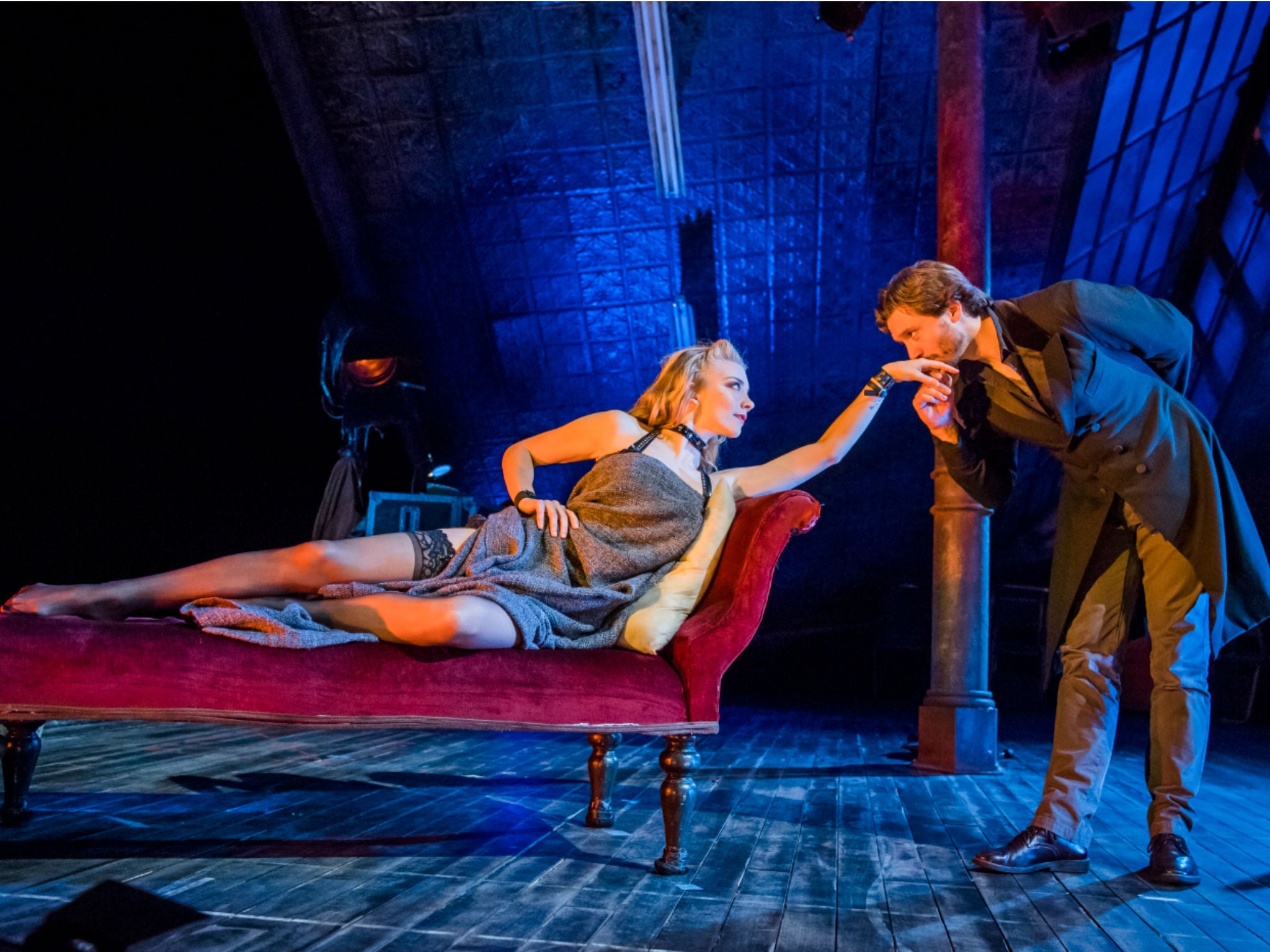Venus in Fur, Theatre Royal Haymarket, London, review: Natalie Dormer shows off her formidable theatrical talent
The 'Game of Thrones' actress Dormer and David Oakes star in the West End premiere of David Ives's Broadway hit

Your support helps us to tell the story
From reproductive rights to climate change to Big Tech, The Independent is on the ground when the story is developing. Whether it's investigating the financials of Elon Musk's pro-Trump PAC or producing our latest documentary, 'The A Word', which shines a light on the American women fighting for reproductive rights, we know how important it is to parse out the facts from the messaging.
At such a critical moment in US history, we need reporters on the ground. Your donation allows us to keep sending journalists to speak to both sides of the story.
The Independent is trusted by Americans across the entire political spectrum. And unlike many other quality news outlets, we choose not to lock Americans out of our reporting and analysis with paywalls. We believe quality journalism should be available to everyone, paid for by those who can afford it.
Your support makes all the difference.Tables turned in the sexual power-play of an audition? Recent revelations about Harvey Weinstein have given the British premiere of David Ives’s 2010 play a certain timeliness. But despite a pair of strong performances in Patrick Marber’s slick production, this 90-minute two-hander never felt to me as dangerous or challenging in its determined tricksiness as it seems to think it is.
Game of Thrones star Natalie Dormer shows off her formidable theatrical talent as the enigmatic Vanda, a Noo Yawk actor who turns up late to audition for the female lead in a play adapted by writer-director Thomas Novacek (David Oakes) from the novella Venus in Furs by Leopold von Sacher-Masoch, the Austrian author who gave his name to masochism. Thomas is weary from a day of seeing performers who are unsuitable for the part: “Young women can’t even play feminine these days. Half are dressed like hookers, half like dykes.” And, according to him, they all sound “like six-year-olds on helium”.
So, at first, he is reluctant to try out Vanda who arrives in the attic rehearsal space in a clap of thunder, bearing a big bag of costumes and bombarding him with her Brooklyn brashness. But he’s increasingly intrigued as, slipping a dress over her skimpy black PVC outfit, she demonstrates an uncanny ability to flip between streetwise, sceptical New Yorker and the sophisticated lady in the Sacher-Masoch adaptation who has the role of dominatrix arguably foisted on her by the hero. This latter part – a man whose taste for submission was fixed by the early experience of being birched by a fur-wearing aunt – is read by the playwright/adaptor through a rehearsal that has the feel of a kinky cat-and-mouse game.
“Where in the world did you come from?” he asks Vanda as it becomes clear that she knows the piece by heart and is alarmingly clued-up in her near-miss “guesses” about his girlfriend. Dormer portrays this teasing elusiveness with a pungent, flighty wit and commanding charisma. Her character assumes the whip hand as the reading proceeds and the boundaries between life and art blur. Who calls the shots? is the question that exercises Vanda. Is Venus in Fur just highbrow S&M porn, a male fantasy masquerading as a blue-print for female liberation through erotic dominance? Or is it that assumption, as the playwright argues, that demonstrates sexist prejudice?
Oakes’s fine, understated Thomas is mountingly rattled and defensive in his protestations that there’s no autobiographical element in his preoccupation with the novella. And there are powerful stage pictures – Vanda’s thigh-length boots pulled on her by the abased hero in his footman’s jacket.
But there is a hermetic, over-studied quality to the proceedings. I’m not complaining about the play-within-a-play format, just that here the piece seems to be offering clunky footnotes to a whole tradition of drama about gender and power from The Bacchae to The Maids.
Its own implication in the issues it raises (given what we are offered to gawp at) is an irony that’s never made truly provocative. And the jokey-serious tone is curiously bland rather than jolting. The play wields the whip and tips the wink without drawing blood.
Join our commenting forum
Join thought-provoking conversations, follow other Independent readers and see their replies
Comments